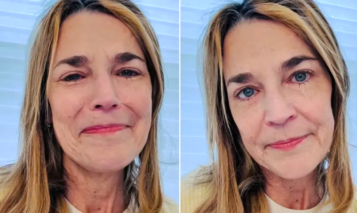
Elijah McClain, 23, was injected with the drug Ketamine during an arrest that led to his death in police custody in Denver last year.
Now medical experts are calling for police departments to end the practice of injecting people with powerful sedatives during police calls.
Some medical and legal experts say ketamine – or any form of sedative – should not be used to subdue someone in police custody in the field.
Tony Timpa, a 32-year-old Dallas man called police for help in August 2016. He said he was depressed and off his schizophrenia medication. During his encounter with police in a parking lot, Timpa cried out for help 30 times.

Arriving medics gave him an injection of ketamine. Before he died, Timpa shouted repeatedly, “You’re gonna kill me!”
50-year-old Jamie Britt in Mount Pleasant was reportedly “combative” during a drunk driving arrest last year. Arriving paramedics administered a shot of ketamine.
He was held down by police officers for 3-4 minutes, then became “unresponsive,” according to an autopsy report. The medical examiner concluded the ketamine injection was the “proximate cause of death.”
McClain’s death in Colorado has drawn attention to the dangerous practice of using ketamine in the field to sedate people during police calls.
McClain was detained by three Aurora police officers after a resident called police on Aug. 24, 2019. McClain, a massage therapist, was walking home from a corner store. His family said he was anemic and wore ski masks to stay warm.
The officers determined McClain was “combative” and took him to the ground, while applying a neck restraint. McClain could be heard telling the officers he couldn’t breathe on a body cam video.
A medic told officers that “when the ambulance gets here, we’re going to go ahead and give him some ketamine,” according to NBC News.
One of the officers responded, “Sounds good,” and added that McClain appeared to be “on” something and he had “incredible strength.”
An Aurora Fire and Rescue medic injected McClain with 500 milligrams of ketamine, according to the district attorney’s report.
The coroner found that McClain’s death was due to “undermined causes,” and that he had marijuana and ketamine at a “therapeutic level” in his system.
“Although there is no evidence to support ketamine overdose,” according to the coroner’s report, the coroner “could not exclude the possibility that Mr. McClain suffered from an unexpected reaction to the drug.”
“Why anyone would be giving ketamine in that circumstance is beyond me,” said neuroscientist Carl Hart, chair of Columbia University’s psychology department. “The major problem here is we should never be ordering any medication, and no one should be taking or given it against their will.”





